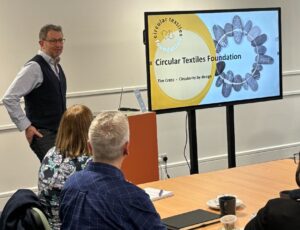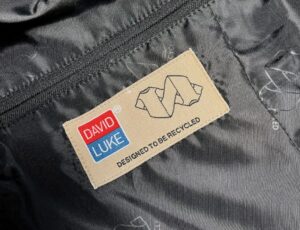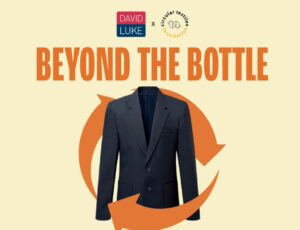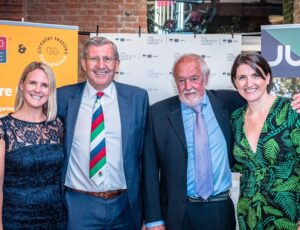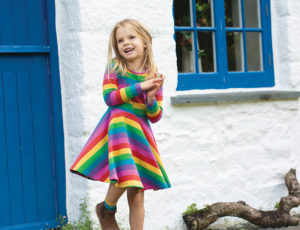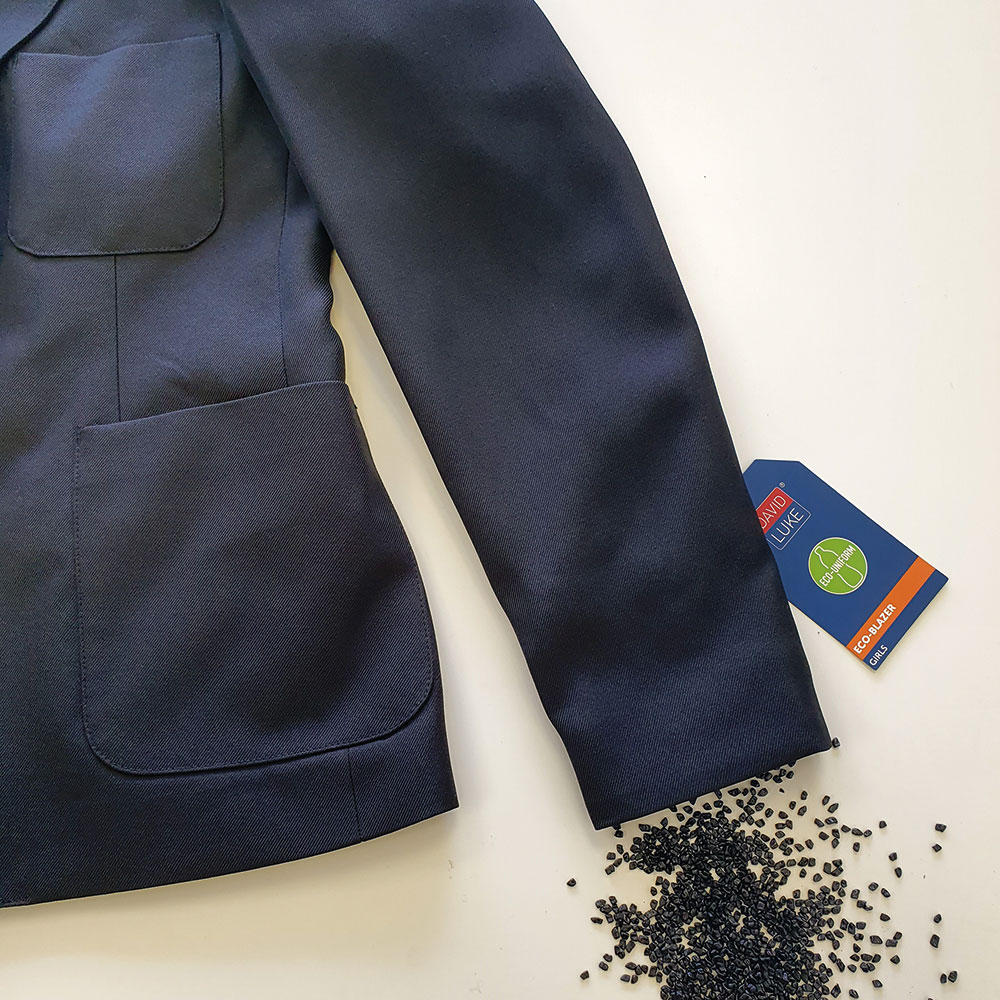
Laura Turner learns more about David Luke’s pioneering vision to make its school uniform 100% recyclable.
Over a decade ago in an industry first, David Luke introduced school blazers manufactured using recycled polyester from post-consumer plastic bottles, placing the brand at the forefront of the sector. Now, in another ground-breaking move following a new partnership with the Circular Textiles Foundation (CTF), blazers will return as the focal point of David Luke’s sustainability practices along with a complete mindset shift in terms of how it closes the loop.
In short, the company wants to make its school uniform completely circular so that the garments are 100% recyclable and never need to go to landfill or incineration. The strategy for the next 10 years, therefore, is to design for circularity through fibre-to-fibre recycling technologies. David Luke’s Eco Blazer and Jackets are being designed with this specific goal in mind, carrying the CTF certification mark from January 2023 with the goal of encompassing the entire Eco-uniform range in the future.
Having this CTF mark guarantees that the garment has been designed to be recycled by a specific facility, which processes it into new fabric at end of use. The fabric can then be utilised to make new clothing; eliminating waste, reducing the need for virgin materials and lowering CO2 emissions.
Commenting is Kathryn Shuttleworth, MD of David Luke
“We have been quite obsessed with responsible production and consumption of clothing and exploring the next solution for end-of-life school uniform. Our Re:Uniform campaign is still so much of what we are about; putting more into the construction of products so that they can be handed down and live a long life. But when the inevitable happens and garments cannot be rescued, it is greatly disappointing to discover there are very few well-developed solutions out there.
“We have worked with garment recyclers where there has been a historical approach to down-cycling and converting waste fabrics into blankets, flooring or rags, but this still doesn’t feel like a useful way to introduce circularity. And so, through our links with the garment recyclers connecting us to work with Reskinned, we were then signposted to the CTF.”
CTF is a ground-breaking initiative that provides an independent circularity standard for genuine accountability, transparency and peace of mind. In making circularity accessible to all, the Foundation turns the concept into a reality.
CTF’s founders come from a garment design and manufacturing background and, aware of the environmental impacts of bulk manufacturing, they looked at how to improve the way things were done. Quickly recognising that switching to recycled materials was simply not enough if that garment could not be recycled at end of use, the need for fibre-to-fibre recycling technologies was identified.
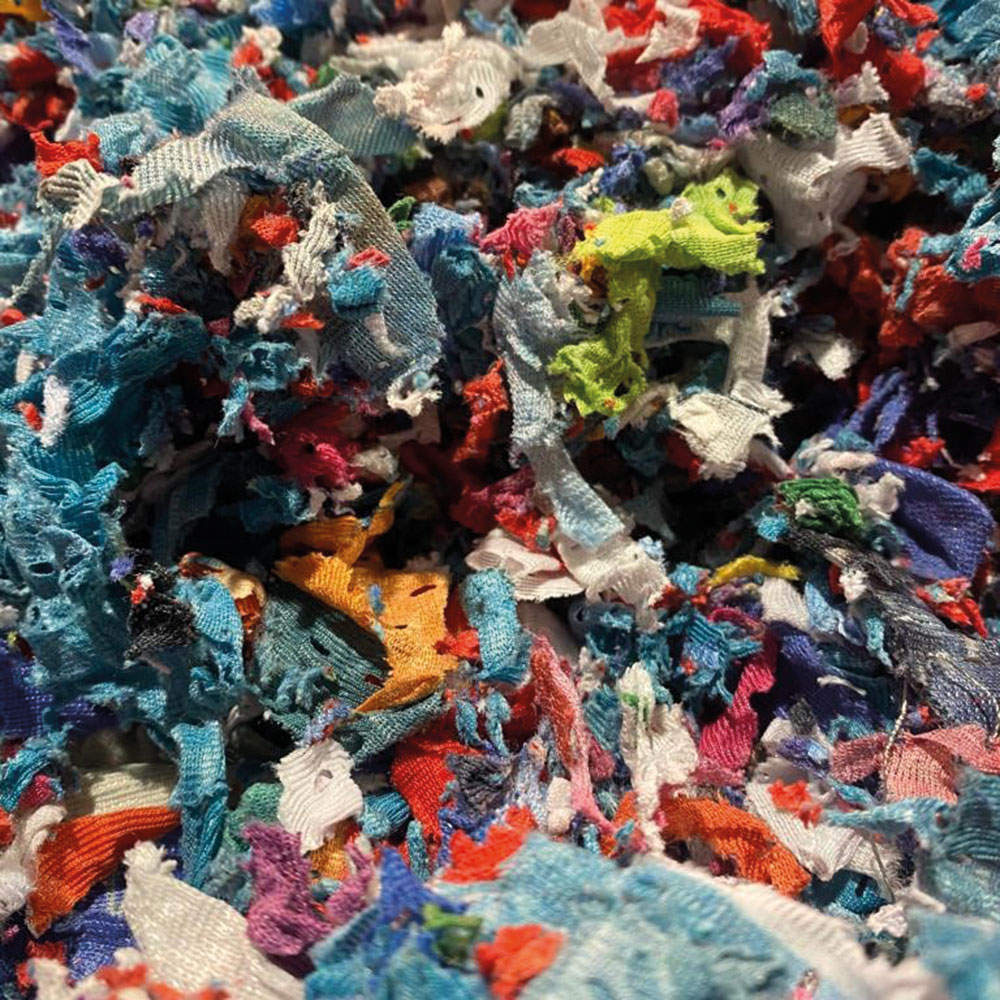
From this, the Project Plan B fibre-to-fibre mechanical extrusion technology was developed and backed by learnings and research, the CTF was created
“David Luke has truly broken the mould by embracing new ways of working across its business to enable the swift and effective integration of circular design principles,” says Sophie Scanlon, head of circular design at CTF. “We are delighted and proud to be assisting them in delivering the first recyclable school blazer, a standout piece and the first of its kind for schoolwear.”
With the majority of clothing, including school uniform, using blended fibres, the mechanical and chemical reprocessing technologies that exist have struggled to separate those fibres to ensure that they can all be reused again.
Working with CTF, David Luke has gone through a significant process to assess every element of the products it is starting with, resourcing if necessary, in order to certify the content. This includes everything from fabric, buttons and thread, to zips, interlining and shoulder pads.
“For garments using multi-fibres, circular solutions are challenging,” confirms Shuttleworth. “Many products within schoolwear may use blended fabrics for several different reasons including comfort, colour consistency or performance. However, we are committed to starting that redesign process with as many areas of our range as we can.
“We are aiming for some of the low-hanging fruit first before we embark on trials for new engineering and design in products. The process so far has been quicker than we feared but helped by the fact that our Eco blazers and Jackets use mono-fibre polyester.
“We are acutely aware that consistency and continuity are extremely important in schoolwear, so we will not seek to make changes that introduce unacceptable levels of variation. Nevertheless, we see that this is a movement that must grow to deliver a more responsible approach to garment production and consumption, so we are committed to continuing this journey.”
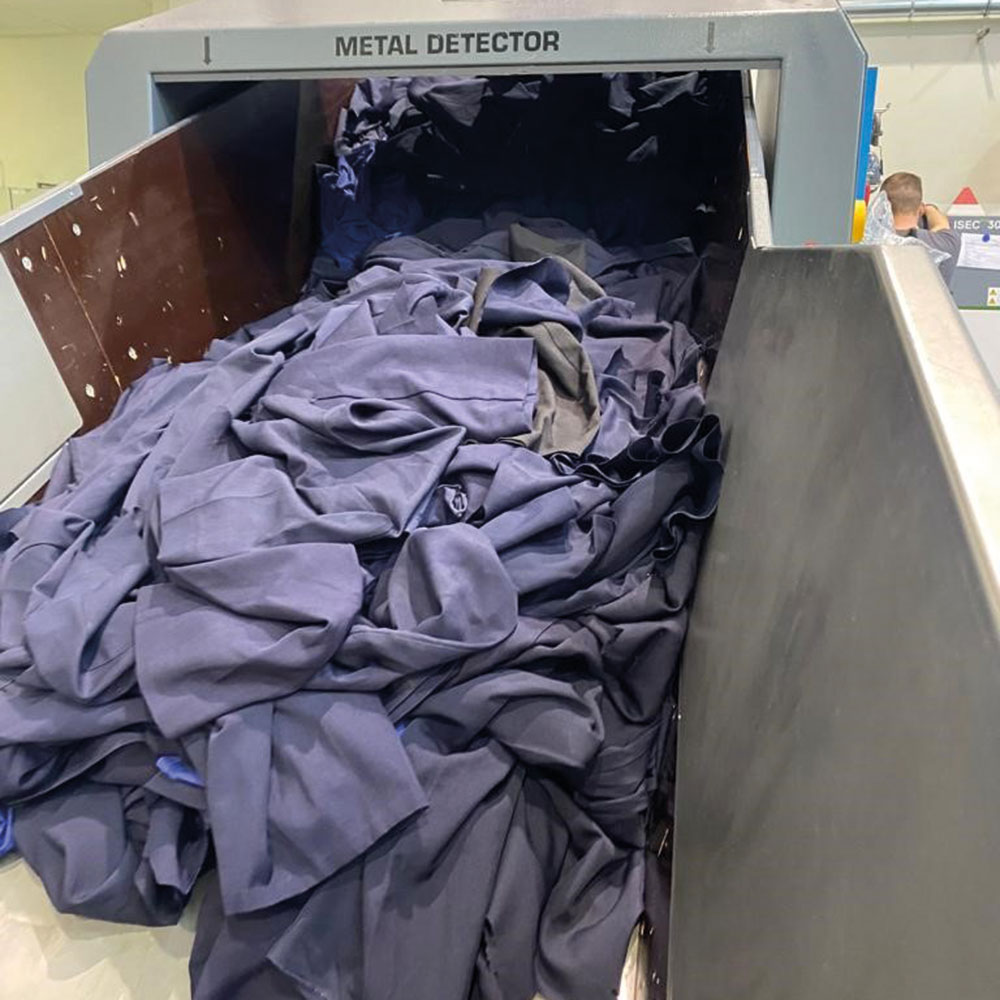
David Luke School Uniform is one of three brands under The Parently Group umbrella
Its sister brands are Juco, a kids’ activewear collection, and Grass&Air, which offers children’s wellingtons, accessories and outerwear. With the model of ‘take, make, use, lose’ rapidly becoming outdated, the Group is keen to keep moving forward and apply a circular mindset to all that it does.
From this point on, The Parently Group will take an all-encompassing approach to circular design, which it will apply to all new developments across the brands alongside communicating the process for circulatory to the wider industry.
David Luke customers, for example, can actively join in with the brand’s circular journey by scanning the QR code found on the garment’s tag to find out how and where it can be recycled. There will also be information at point of sale and on David Luke’s website.
“We feel that this information and education will also be a great pull for schools,” adds Shuttleworth. “The last 14 years of talking about recycled polyester still leaves people asking: But what happens to it at the end? With scenes like the Atacama Desert in Chile, where the clothing mountain is building up to horrific proportions, it feels so important to start this process of answering that question.”
This year is a milestone for David Luke for several reasons
As well as closing the loop, the company is celebrating 40 years in business and recently commemorated the retirement of its co-founder, David Burgess.
“We hosted our 40-year celebrations and marked the retirement of our joint founder David Burgess at the Museum of Science and Industry in Manchester,” concludes Shuttleworth. “With this venue housing some of the first mass production machinery that sparked off the industrial revolution in textiles, it was a fitting location to welcome special guests from CTF to talk about how we can start the next revolution in clothing – full circle.”
There is something almost poetic about David Luke’s sustainability journey. A loop that began with the progressive vision of recycled school blazers spearheaded by David Burgess, which has since been developed and closed by Burgess’ daughter and company MD, Kathryn Shuttleworth. The next phase of David Luke School Uniform is upon us.
For further information on David Luke School Uniform, please click here.





